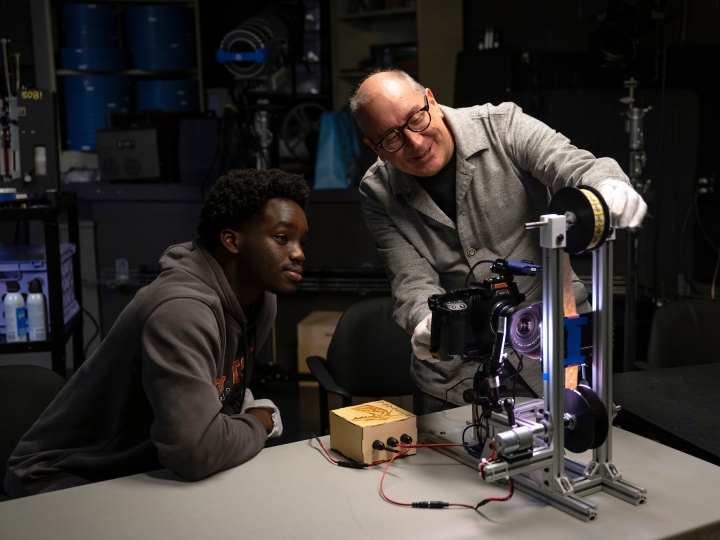Cool Classes: Sequence, Society and Self
October 14, 2016
What class? Discovery Residential College Foundation Seminar: Sequence, Society and Self
Who teaches it? Professor Emily Stowe, biology
"In 1952 Alfred Hershey and Martha Chase provided the data that finally confirmed DNA is genetic material. In 1953 James Watson and Francis Crick (with the help and data of others) published the description of the structure of DNA now known as the double helix.
"Over the next 50 years, scientists worked together to determine how the genetic material worked, solidify the concept of the gene and sequence the human genome, work that was completed by the Human Genome Project in 2003. The 3 billion base pairs of the human genome are now publically available, but this blueprint of life still leaves us with many questions.
"Students in this class use the genome as a lens to understand what makes humans human. They study the genetic information publically available to understand the inheritance of disease and watch films to explore the potential use of genetic technologies in dystopian futures.
"We are all 99.9 percent the same as the person next to us — yet we are 100 percent unique. What in the 0.1 percent difference is important to make us individuals and what in that 99.9 percent bonds us together?
"After learning about the biology of a new gene editing system called CRISPR, students discuss the use of this technology on human embryos. They must decide what differences could be altered and what differences should be left alone, ultimately deciding whether the ability to 'correct' sequences has an impact on how we define ability and disability.
"Comparing Gattaca, a dystopian look at genetically manipulated society, to Tomorrow's Children, a film from the 1930's that explores the real use of eugenics and sterilization in America, allows students to explore the presentation of genetics in media.
"Students even have the opportunity to explore their own genetic roots by isolating and sequencing their own mitochondrial DNA. Will knowing their deep maternal lineages change their understanding of their heritage?
"We end the semester exploring human evolution. Why are Homo sapiens the only living member of our genus? What legacies of those other species can be found in our genomes? If your professor's genome is 2.6 percent Neanderthal does that make her more or less human than you?
"Finally, students must ask themselves, am I just my sequence or is there more to being human?"
See what else Bucknell offers in the Department of Biology and learn more about the Residential Colleges.
Bucknell is celebrating the 30th anniversary of the Residential Colleges, a hallmark of the Bucknell experience.

